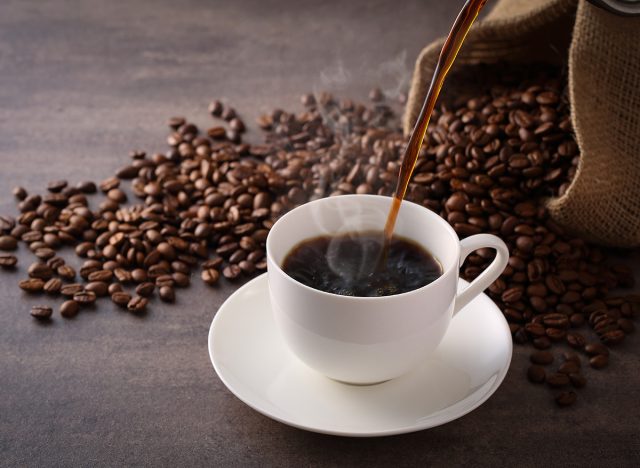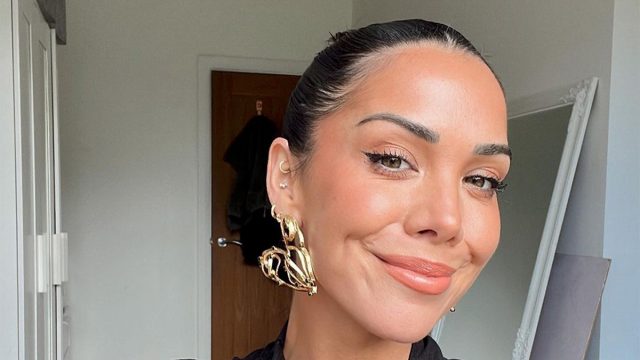#1 Habit That Ruined My Hormonal Health, According to Nutritionist
Dr Hazel Wallace BSc MSc MBBCh (@thefoodmedic) is a doctor, nutritionist, and social media influencer who has amassed over 682,000 Instagram followers. She regularly shares the tips and tricks that have helped her take control of her health.
In one viral video, she discusses hormonal health and confessed that she made several mistakes in the past. "Let's talk about the morning routine I did for years that, looking back, was pretty terrible for my hormone health," she says in the Instagram video.
She Sacrificed Sleep
First, she neglected rest. "Without fail, I'd wake up early to work out before my ward rounds, even if it meant sacrificing sleep," she says. Why is sleep important? According to the Sleep Foundation, getting enough z's is a mood booster, promotes heart health, regulates blood sugar, improves mental function, restores your immune system, helps relieve stress, and aids in weight loss.
She Failed to Nourish Her Body

She also failed to nourish her body. "And more often than not, quite a lot of it, I would feel myself only on black coffee because back then fasted training was all the rave," she continues.
Related: 3 Tips That Helped Me Lose Body Fat
She Stressed Her Body with High Intensity Workouts

"And if my body wasn't stressed enough as it was, the workout was always high intensity, a bootcamp or CrossFit session, I'd gotten into the cycle of believing that the workout didn't really count unless it left me on the floor afterwards, or I burned X amount of calories while I know better," she maintains.
These Habits Damaged Her Health

"Now, the reality is a lot of these habits are so normalized in the name of wellness and help. Ironically, for me, that led to the opposite. Irregular periods, constant fatigue, irritability, and often falling ill," she reveals.
She Now Prioritizes Sleep, Eats Nourishing Food, and Engages in Restorative Exercise

"True health to me now is prioritizing sleep, nourishing food, healthy hormones, and training that I enjoy and that serves my body rather than pushing it to its limits," she says, "So before picking up a healthy habit you saw online somewhere, ask yourself this, what is true health to me? And does this actually align to that?"
Find "What Your Body Feels Best With"

In the caption, she rehashed the "habits that I now know deteriorated my hormonal health."
- Consistently sacrificing sleep for more time training
- Training fasted and often not having my first meal until lunchtime.
- Doing the above and then choosing a high-intensity workout
"I'm not saying these alone are inherently bad for you – it's about finding what your body feels best with. I still do high intensity exercise but not every day and never fasted. I sometimes get up early to train but I also sometimes lay in when I need to," she says.
Related: Benchmark Your Progress with Our Lean Body Mass Calculator
Find "What Your Body Feels Best With"

"This is extremely common for many people," says The Diet Diva, Tara Collingwood, MS, RDN, CSSD, LD/N, ACSM-CPT, a Board Certified Sports Dietitian. "Putting so much pressure on themselves to be 'perfect' with their exercise and diet routines that they actually become unbalanced, injured, sick, and unhappy."
She notes that recovery is just as important as pushing ourselves. "Sleep, stretching, foam rolling, meditation, nutritious foods, massage….all great ways to incorporate recovery that our bodies need, especially as we age!" she says.
💪🔥Body Booster: Instead of seriously restricting yourself, rigorously working out, and sacrificing sleep, try nurturing your body with restorative exercise, healthy food, and rest.





